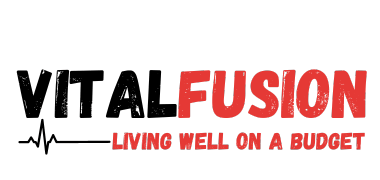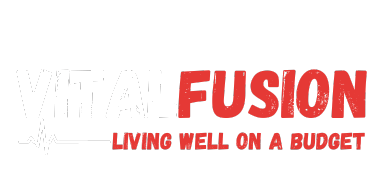As a freelancer, navigating the complex world of healthcare coverage can be a daunting task. With the constantly evolving landscape of health insurance policies and regulations, it’s crucial for self-employed professionals like yourself to stay informed and explore the affordable options available in 2024. Whether you’re a seasoned freelancer or new to the gig economy, securing comprehensive and cost-effective health insurance is essential for protecting your wellbeing and financial stability.
In this comprehensive guide, we’ll delve into the healthcare challenges facing freelancers, the recent changes in policies that impact your coverage, and a wide range of affordable health insurance options tailored specifically for independent contractors. By the end of this article, you’ll be equipped with the knowledge and tools needed to make informed decisions and find the right health plan that meets your unique needs and budget.

Key Takeaways
- Explore affordable health insurance options for freelancers in 2024 to protect your wellbeing and financial stability
- Understand the healthcare landscape and key challenges facing self-employed professionals
- Discover the impact of the Affordable Care Act on freelancer health coverage
- Evaluate various insurance plans, including marketplace options, professional association plans, and health sharing ministries
- Maximize tax benefits and savings through Health Savings Accounts (HSAs)
Understanding the Healthcare Landscape for Self-Employed Professionals
As a freelance or self-employed individual, navigating the complex world of healthcare can be a daunting task. The unique challenges facing independent contractors, such as individual health insurance, healthcare for independent contractors, and affordable premiums for gig workers, require a deep understanding of the current healthcare landscape.
Key Challenges Facing Freelance Workers
Freelancers often face a range of obstacles when it comes to securing comprehensive and affordable premiums for gig workers. From the lack of employer-sponsored coverage to fluctuating incomes, the healthcare needs of self-employed professionals can vary significantly. Additionally, the unpredictability of medical expenses can make it challenging to plan and budget for individual health insurance.
Recent Changes in Healthcare Policies
The healthcare industry has undergone several notable changes in recent years, particularly with the implementation of the Affordable Care Act (ACA). These policy shifts have had a significant impact on healthcare for independent contractors, expanding access to individual health insurance options and introducing new programs to support self-employed individuals.
Impact of the Affordable Care Act on Freelancers
The Affordable Care Act has been a game-changer for freelancers, providing them with more opportunities to secure affordable premiums for gig workers. The creation of healthcare marketplaces, subsidies, and the expansion of Medicaid have all contributed to improving healthcare for independent contractors. However, the landscape continues to evolve, and it’s crucial for freelancers to stay informed about the latest developments in order to make the best decisions for their individual health insurance needs.
Understanding the healthcare landscape for self-employed professionals is the first step in navigating the complexities of individual health insurance and finding the right coverage options that meet your unique needs and budget. By staying informed about the latest changes in healthcare policies and the impact on healthcare for independent contractors, you can make more informed decisions and access the affordable premiums for gig workers that you deserve.
Exploring Available Health Insurance Options for Independent Contractors
As a freelance or self-employed professional, securing comprehensive health insurance coverage can be a significant challenge. However, you have a variety of options to consider when it comes to freelancer health plans and self-employed health coverage. Exploring these alternatives can help you find the best individual health insurance solution for your unique situation.
Marketplace Insurance Plans
One of the most accessible options for freelancers is to explore the health insurance marketplaces established under the Affordable Care Act. These marketplaces offer a range of plans, often with subsidies or tax credits available to help make coverage more affordable.
Private Health Insurance Plans
In addition to marketplace plans, you may also consider purchasing a private health insurance policy directly from an insurance provider. While these plans may come with higher premiums, they can offer more customized coverage and flexibility to meet your specific healthcare needs.
Alternative Coverage Options
- Health Sharing Ministries: These faith-based organizations allow members to share medical expenses, potentially providing a more cost-effective alternative to traditional health insurance.
- Professional Association Plans: Joining a professional association or trade group may grant you access to group health insurance plans, often at discounted rates.
- Short-Term Health Plans: These temporary plans can bridge coverage gaps, but they typically have more limited benefits and exclusions compared to comprehensive health insurance.
| Health Insurance Option | Key Advantages | Potential Drawbacks |
|---|---|---|
| Marketplace Plans | Subsidies and tax credits available Guaranteed coverage for pre-existing conditions | Limited plan options in some areas Premiums may still be high for some individuals |
| Private Health Insurance | Customizable coverage options Flexibility to choose providers | Generally higher premiums May not cover pre-existing conditions |
| Health Sharing Ministries | Lower monthly costs Faith-based community support | Limited coverage for certain medical expenses Eligibility requirements based on religious beliefs |
By exploring these various health insurance options for independent contractors, you can find a coverage solution that aligns with your budget, healthcare needs, and personal preferences. It’s important to carefully evaluate each option to determine the best fit for your situation.
Affordable Health Insurance Options for Freelancers: A Comprehensive Guide
As a freelancer, finding low-cost medical insurance can be a daunting task. However, with the right knowledge and guidance, you can navigate the healthcare landscape and secure affordable coverage that meets your needs. In this comprehensive guide, we’ll explore the various health insurance options available to freelancers, including marketplace plans, professional association offerings, and health sharing ministries.
Marketplace Insurance Plans
One of the most popular options for freelancers seeking affordable health insurance is the healthcare marketplace. These government-run exchanges offer a range of plans with varying premiums, deductibles, and coverage levels. By comparing plans and subsidies, you can find a low-cost medical insurance solution that fits your budget and healthcare requirements as a gig worker or independent contractor.
Professional Associations and Group Plans
Many professional organizations, such as trade associations or industry groups, offer group health insurance plans for their members. These plans often provide more affordable premiums for freelancers and self-employed individuals, leveraging the collective bargaining power of the group. Exploring healthcare options through your professional network can be a valuable avenue for finding low-cost medical coverage.
Health Sharing Ministries
Health sharing ministries are a unique alternative to traditional health insurance, providing a faith-based approach to healthcare costs. These non-profit organizations allow members to share medical expenses, often at a lower cost than traditional insurance plans. While the requirements and coverage may vary, health sharing ministries can be an affordable option for freelancers who align with their underlying principles.
Regardless of the approach you choose, it’s essential to carefully evaluate each option, compare the costs and coverage, and select the plan that best meets your healthcare needs and budget as a freelance worker. By exploring these affordable health insurance options, you can ensure that you and your family have access to the essential medical care you require.
Maximizing Health Savings Accounts (HSAs) and Other Tax Benefits
As a freelancer, managing your healthcare costs can be challenging, but by leveraging Health Savings Accounts (HSAs) and other tax benefits, you can stretch your healthcare dollars further. HSAs are a powerful tool that allow you to save and pay for eligible medical expenses with pre-tax dollars, ultimately reducing your taxable income.
To take advantage of an HSA, you must be enrolled in a high-deductible health plan (HDHP), which typically have lower monthly premiums but higher deductibles. Once you’ve enrolled in an HDHP, you can contribute to an HSA, with annual contribution limits of $3,650 for individuals and $7,300 for families in 2023.
In addition to HSA contributions, freelancers can also take advantage of other tax-saving opportunities, such as deducting the cost of health insurance premiums and eligible medical expenses. By staying informed about these options and planning your healthcare strategy accordingly, you can maximize your savings and ensure you have the coverage you need to stay healthy and productive.
Key Benefits of Health Savings Accounts (HSAs) for Freelancers:
- Tax-deductible contributions that lower your taxable income
- Tax-free growth of the funds in your HSA account
- Tax-free withdrawals for eligible medical expenses
- Ability to carry over unused funds year-over-year
- Opportunity to invest HSA funds for long-term savings
By understanding and taking advantage of HSAs and other tax benefits, freelancers can create a more sustainable and cost-effective healthcare strategy, ultimately improving their financial well-being and peace of mind.

Comparing High-Deductible vs. Traditional Health Plans
As a freelancer, navigating the world of health insurance can be challenging. One crucial decision you’ll face is choosing between high-deductible health plans (HDHPs) and traditional health plans. Understanding the cost analysis and coverage differences between these options can help you make an informed choice that aligns with your healthcare needs and budget.
Cost Analysis and Coverage Differences
High-deductible health plans typically feature lower monthly premiums but higher out-of-pocket costs before coverage kicks in. Traditional plans, on the other hand, often have higher monthly premiums but lower deductibles and more comprehensive coverage. The right plan for you will depend on your anticipated healthcare usage and financial situation.
Making the Right Choice for Your Situation
When selecting between high-deductible and traditional health plans, consider factors such as your overall health, the frequency of medical visits, and any chronic conditions you may have. If you’re generally healthy and don’t anticipate needing frequent medical care, a high-deductible plan with its lower premiums may be a cost-effective choice. However, if you or your family members require regular medical attention, a traditional plan with its lower out-of-pocket costs may be the better option.
Understanding Out-of-Pocket Maximums
Regardless of the plan you choose, it’s important to understand the concept of out-of-pocket maximums. This is the maximum amount you’ll have to pay for covered healthcare services in a given year, after which your insurance will cover 100% of the remaining costs. Knowing your out-of-pocket maximum can help you budget and plan for potential healthcare expenses.
| High-Deductible Health Plan (HDHP) | Traditional Health Plan |
|---|---|
| Lower monthly premiums | Higher monthly premiums |
| Higher deductible before coverage kicks in | Lower deductible |
| Potential for lower overall healthcare costs if you have lower medical needs | Potential for higher overall healthcare costs, but more comprehensive coverage |
By carefully weighing the cost analysis, coverage differences, and your personal healthcare needs, you can make an informed decision on the best health insurance option for your situation as a freelancer seeking affordable health insurance options for freelancers and low-cost medical insurance. Remember, the right choice can help you manage your high-deductible health plans and stay financially secure.
Navigating Health Insurance Marketplaces and Enrollment Periods
As a freelancer or independent contractor, navigating the complexities of individual health insurance can be daunting. The good news is that health insurance marketplaces, also known as exchanges, offer a streamlined way to explore your options and enroll in coverage that suits your needs and budget.
The first step is to familiarize yourself with the enrollment periods. In the United States, the open enrollment period for individual health insurance typically runs from November 1st to December 15th each year. During this time, you can compare plans, apply for coverage, and ensure your individual health insurance is in place for the upcoming year.
- Research and compare plans on your state’s health insurance marketplace or the federal HealthCare.gov platform.
- Determine if you qualify for any subsidies or tax credits that can help make your individual health insurance more affordable.
- Consider the affordable premiums for gig workers and freelancer health plans available in your area.
- Ensure you enroll before the deadline to avoid gaps in your individual health insurance coverage.
Remember, the health insurance marketplace is not the only option for freelancers. Professional associations, industry groups, and even health sharing ministries may offer freelancer health plans that provide comprehensive coverage at competitive rates. By exploring all available resources, you can find the right balance of affordability and protection for your unique situation.
“Navigating the health insurance landscape as a freelancer can be challenging, but the health insurance marketplaces make it easier to find the right coverage at the right price.”

Cost-Saving Strategies for Freelancer Healthcare Coverage
As a freelancer, managing your healthcare coverage can be a constant challenge. However, with the right strategies, you can find ways to save on your medical expenses without compromising the quality of your care. In this section, we’ll explore three cost-saving tactics that can help you navigate the world of affordable health insurance options for freelancers, low-cost medical insurance, and healthcare for independent contractors.
Negotiating Medical Bills
One of the most effective ways to reduce your healthcare costs is to negotiate your medical bills. Many healthcare providers are willing to offer discounts or payment plans to patients who are proactive in asking for them. Before paying a bill, review it carefully and be prepared to discuss any items that seem inflated or unnecessary. Don’t be afraid to negotiate, as this can lead to significant savings on your low-cost medical insurance expenses.
Preventive Care Benefits
Taking advantage of preventive care benefits can also help you save money in the long run. Most affordable health insurance options for freelancers cover routine check-ups, screenings, and immunizations at little to no cost. By staying on top of your health and catching any issues early, you can avoid more expensive treatments down the line. Consider making preventive care a priority as part of your overall healthcare strategy.
Prescription Drug Programs
Prescription medications can be a significant expense for freelancers, but there are ways to save. Look into prescription drug programs offered by your healthcare for independent contractors plan or explore alternatives like generic medications or mail-order pharmacies. You can also ask your healthcare provider about sample medications or patient assistance programs that may help reduce the cost of your prescriptions.
By implementing these cost-saving strategies, freelancers can effectively manage their affordable health insurance options for freelancers and maintain quality low-cost medical insurance coverage. Remember, staying proactive and informed about your healthcare options is key to keeping your medical expenses under control.
Alternative Healthcare Options and Supplemental Coverage
As a freelancer, you may want to explore alternative healthcare options and supplemental coverage to complement your primary insurance plan. Telemedicine services, for instance, can provide you with convenient and affordable access to medical consultations, often at a fraction of the cost of an in-person visit. These virtual care platforms connect you with licensed healthcare professionals who can diagnose and treat a variety of common conditions remotely.
Additionally, discount health programs offer you the opportunity to save on healthcare expenses, from prescription drugs to dental and vision care. By enrolling in these programs, you can take advantage of negotiated rates and discounts, helping you manage your out-of-pocket costs. Supplemental policies, such as accident, critical illness, or hospital indemnity insurance, can also fill gaps in your primary coverage, providing you with additional financial protection in the event of unexpected medical expenses.
As you navigate the freelancer healthcare landscape, it’s essential to explore all the available options, including alternative and supplemental coverage, to find the best fit for your needs and budget. By taking a proactive approach to your healthcare, you can ensure that you and your family are well-protected, no matter what challenges may come your way.
FAQ
What are the main challenges freelancers face in finding affordable health insurance?
As a freelancer, you often don’t have access to employer-sponsored health insurance, making it more challenging to find comprehensive and affordable coverage. Additionally, fluctuating income and unpredictable work hours can make it difficult to budget for healthcare expenses.
How has the Affordable Care Act impacted health insurance options for freelancers?
The Affordable Care Act has introduced new opportunities for freelancers, such as the ability to purchase individual health insurance plans through the healthcare marketplaces. This has helped make coverage more accessible and provided additional financial assistance, like premium subsidies, for those who qualify.
What are the main health insurance options available to freelancers?
As a freelancer, you can explore a variety of health insurance options, including marketplace plans, professional association plans, health sharing ministries, and high-deductible plans paired with health savings accounts (HSAs).
How can freelancers take advantage of health savings accounts (HSAs)?
HSAs can be a great tool for freelancers to save and pay for healthcare expenses. They offer tax-advantaged contributions, tax-free withdrawals for qualified medical expenses, and the ability to invest the funds for long-term growth. Eligibility is typically tied to enrollment in a high-deductible health plan.
What’s the difference between high-deductible and traditional health plans, and how do I choose the right one?
High-deductible plans generally have lower monthly premiums but require you to pay more out-of-pocket before coverage kicks in. Traditional plans have higher premiums but often provide more comprehensive coverage from the start. When choosing, consider your anticipated healthcare needs, budget, and financial risk tolerance.
How can I navigate the health insurance marketplace and enrollment periods as a freelancer?
Familiarize yourself with the health insurance marketplace, understand the different enrollment periods, and take the time to compare plans and their associated costs, coverage, and provider networks. This will help you find the most suitable and affordable option for your individual needs.
What cost-saving strategies can freelancers use to manage healthcare expenses?
As a freelancer, you can explore various cost-saving strategies, such as negotiating medical bills, taking advantage of preventive care benefits, and utilizing prescription drug programs. These tactics can help you minimize out-of-pocket costs and make the most of your healthcare coverage.
What alternative healthcare options and supplemental coverage plans are available for freelancers?
In addition to your primary health insurance plan, you can consider supplemental coverage options like telemedicine services, discount health programs, and supplemental policies to fill any gaps in your coverage. These alternative solutions can provide additional support and flexibility for your healthcare needs as a freelancer.






